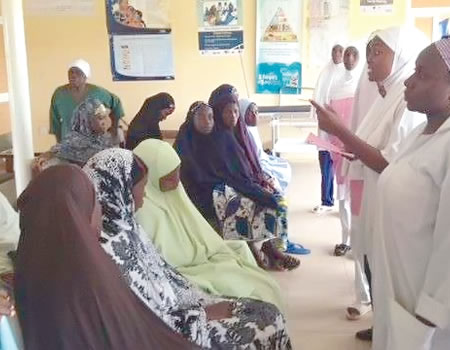In a new study, researchers assessed a method for identifying early HIV-infected individuals and found that screening persons referred for malaria tests for early HIV could be used to control new HIV infections in sub-Saharan Africa.
Results of the study, they said indicated the feasibility of screening persons referred for malaria tests for early HIV in the control of new HIV infections in sub-Saharan Africa.
To identify early HIV infection, over a period of 18 months blood samples were collected from persons referred by clinicians for malaria parasite tests in Nigeria.
The study, in the 2017 edition of the Archives of Virology journal, involved Olusola B. A; Olaleye David O; and Odaibo G. Njideka.
A total of 671 samples were collected and analysed for HIV antigen/antibody and subtypes. 101 of these samples were categorised into one of four groups: early HIV, chronic HIV, malaria infection and control groups for renal function analysis.
They found that 29 percent of HIV infected individuals were at the early stages of infection. The predominant subtype detected was CRF02_AG (57.14 percent). But there was no significant difference between the circulating subtype and the stage of HIV infection.
Persons in the early stages of HIV infection are the major drivers of new infections. These individuals may also develop kidney dysfunctions at this time.
Nigeria, like other African countries, has one of the highest prevalence of newly diagnosed HIV infections. Despite this, limited information exists on early HIV detection in the continent. This may be related to difficulties in providing early HIV diagnosis and treatment.
Many people living with HIV in Nigeria are unaware of their status due to the country falling short- in providing the recommended number of HIV testing and counselling sites.
Low access to antiretroviral treatment remains an issue for people living with HIV, meaning that there are still many AIDS-related deaths in Nigeria.
Punitive laws against homosexuality have meant that men who have sex with men are now even more vulnerable to HIV infection and face many difficulties accessing HIV services.
WATCH TOP VIDEOS FROM NIGERIAN TRIBUNE TV
- Let’s Talk About SELF-AWARENESS
- Is Your Confidence Mistaken for Pride? Let’s talk about it
- Is Etiquette About Perfection…Or Just Not Being Rude?
- Top Psychologist Reveal 3 Signs You’re Struggling With Imposter Syndrome
- Do You Pick Up Work-Related Calls at Midnight or Never? Let’s Talk About Boundaries







